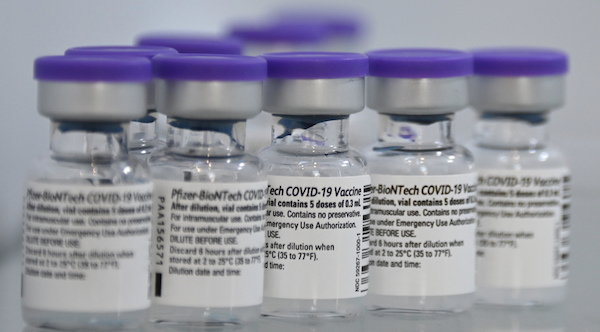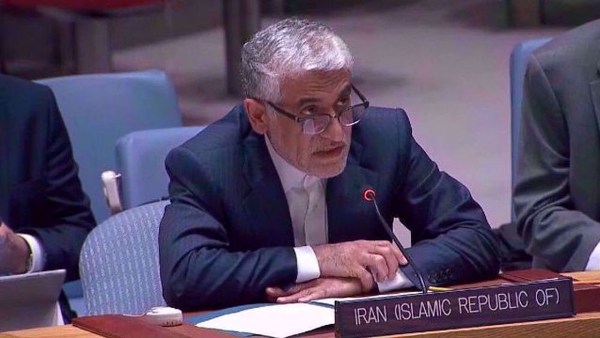
The file photo shows Pfizer-BioNTech COVID-19 vaccine bottles. (By AFP)
The Iranian Red Crescent Society (IRCS) says the import of American Pfizer COVID-19 vaccines has been cancelled against the backdrop of a national address by Leader of the Islamic Revolution Ayatollah Seyyed Ali Khamenei, who banned the purchase of coronavirus vaccines produced by the United States and Britain.
"The import of 150,000 doses of the coronavirus vaccine [developed by] Pfizer Inc from the United States to the country by the Iranian Red Crescent Society is cancelled," the IRCS spokesman Mohammad Hassan Qosian Moqaddam told IRNA on Friday.
"We are ready to cooperate, if necessary, in case [Iranís] Ministry of Health, Treatment and Medical Education puts in a request [for importing vaccines] from Eastern countries."
The official noted that a number of Iranian experts residing in the US were set to supply and dispatch a batch of Pfizer COVID-19 vaccine to Iran, which is no more the question.
Earlier in the day, Ayatollah Khamenei said he was opposed to the purchase of COVID-19 vaccines made by American and British companies.
"I have already said it to government officials, and now announce it publicly. The import of American and British vaccines is prohibited," the Leader said.
"Had the Americans managed to produce a vaccine, they would not have faced such a mess today in their own country. In one day, some 4,000 people died from COVID-19 in the US," Ayatollah Khamenei stated, adding, "I really donít trust them. Sometimes they want to test the vaccine on other nations."
The Leader stressed, however, that the Iranian government is allowed to supply the COVID vaccine from other reliable sources.
The IRCS head, Karim Hemmati, said late last month that the organization was planning to take delivery of a batch of 150,000 doses of coronavirus vaccines produced by Pfizer Inc.
Governor of the Central Bank of Iran (CBI) Abdolnasser Hemmati said on January 5 that the country had finally made a prepayment for the purchase.
Hemmati said that the prepayment for 16.8 million doses of vaccines from COVAX, an initiative sponsored by the World Health Organization (WHO), had taken place in the first day after January holidays.
He described the provision of the funds to the WHO agent in Switzerland as a complicated operation because it had to get round the US sanctions on Iran and its access to the dollar system.
A geneticist in charge of the Pasteur Institute of Iran said on December 28 that a binational project to develop a vaccine for COVID-19, the disease caused by the coronavirus, has entered its second trial phase.
Alireza Biglari said that the Pasteur Institute has been closely monitoring the trial being carried out in the partner country whose name has yet to be identified by Iranian authorities.
Iran has been battling the deadliest pandemic the world has seen in many decades amid the US sanctions.
In May 2018, US President Donald Trump unilaterally withdrew from a UN-endorsed nuclear deal which it had signed as a member of the P5+1 group with Tehran in 2015 and re-imposed the anti-Iran sanctions that had been lifted under the agreement.
The trade of humanitarian goods, such as food, medicine and medical devices, is theoretically allowed by the US, but European companies refuse to do business with Iran, fearing secondary American sanctions. The bans imposed on the Iranian banking system have dissuaded many pharmaceutical firms from doing business with Iran.
LINK: https://www.ansarpress.com/english/21858
TAGS:






























 Iran rejects Reuters report on deal in Vienna talks as effort to boost Western sideís standing
Iran rejects Reuters report on deal in Vienna talks as effort to boost Western sideís standing 




